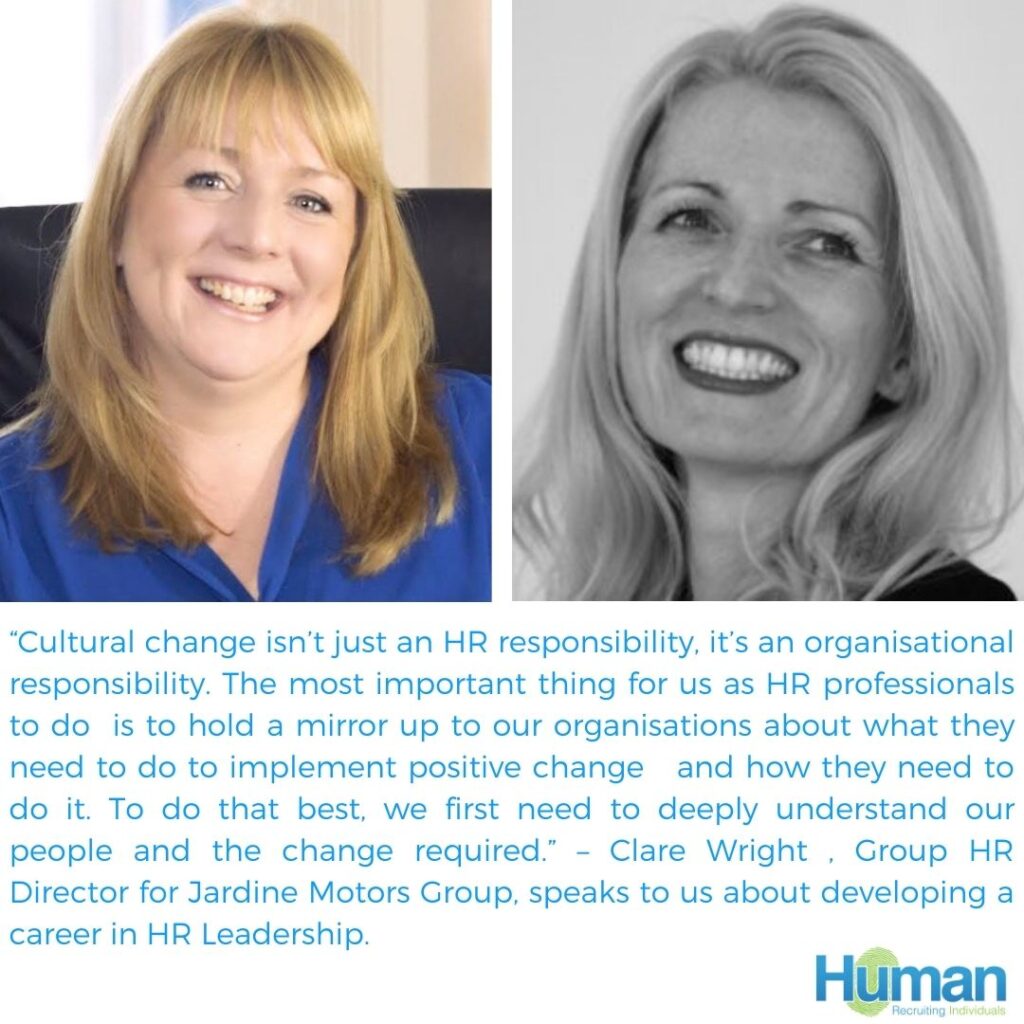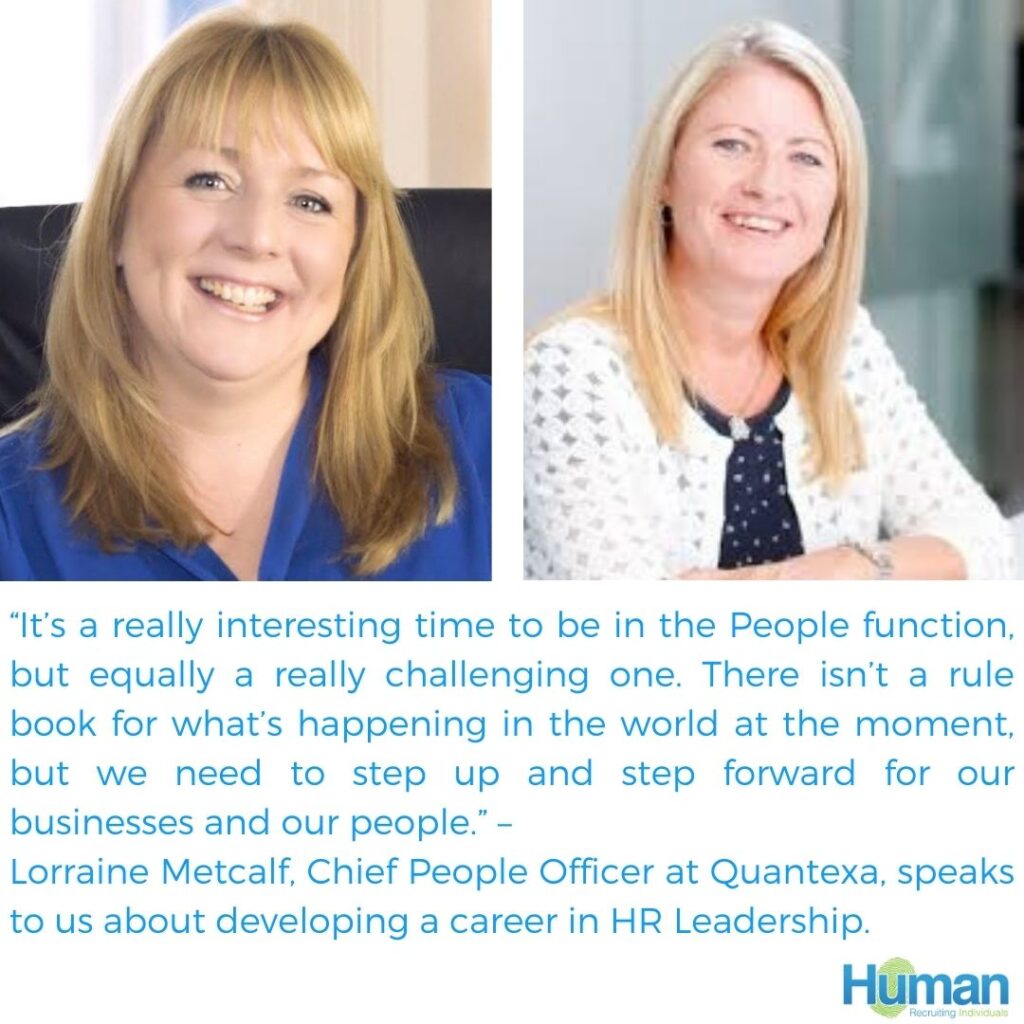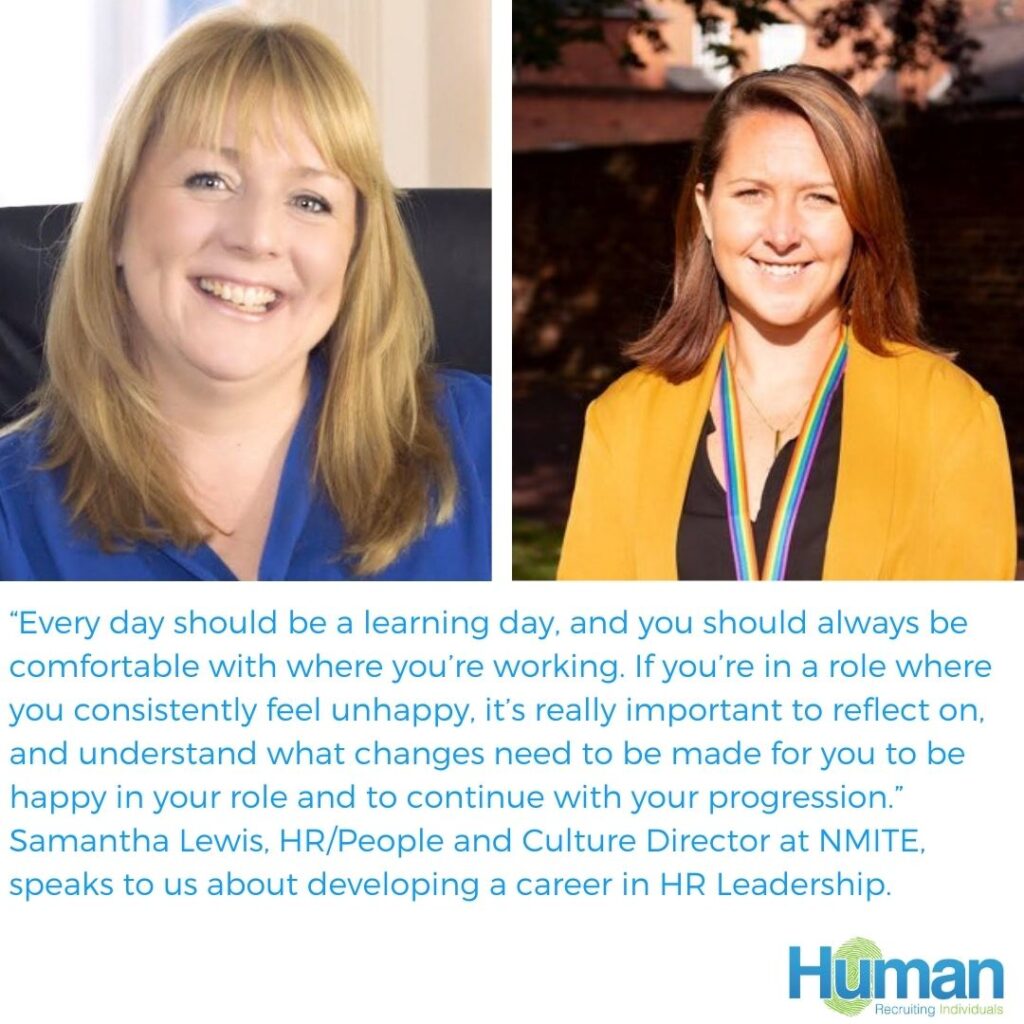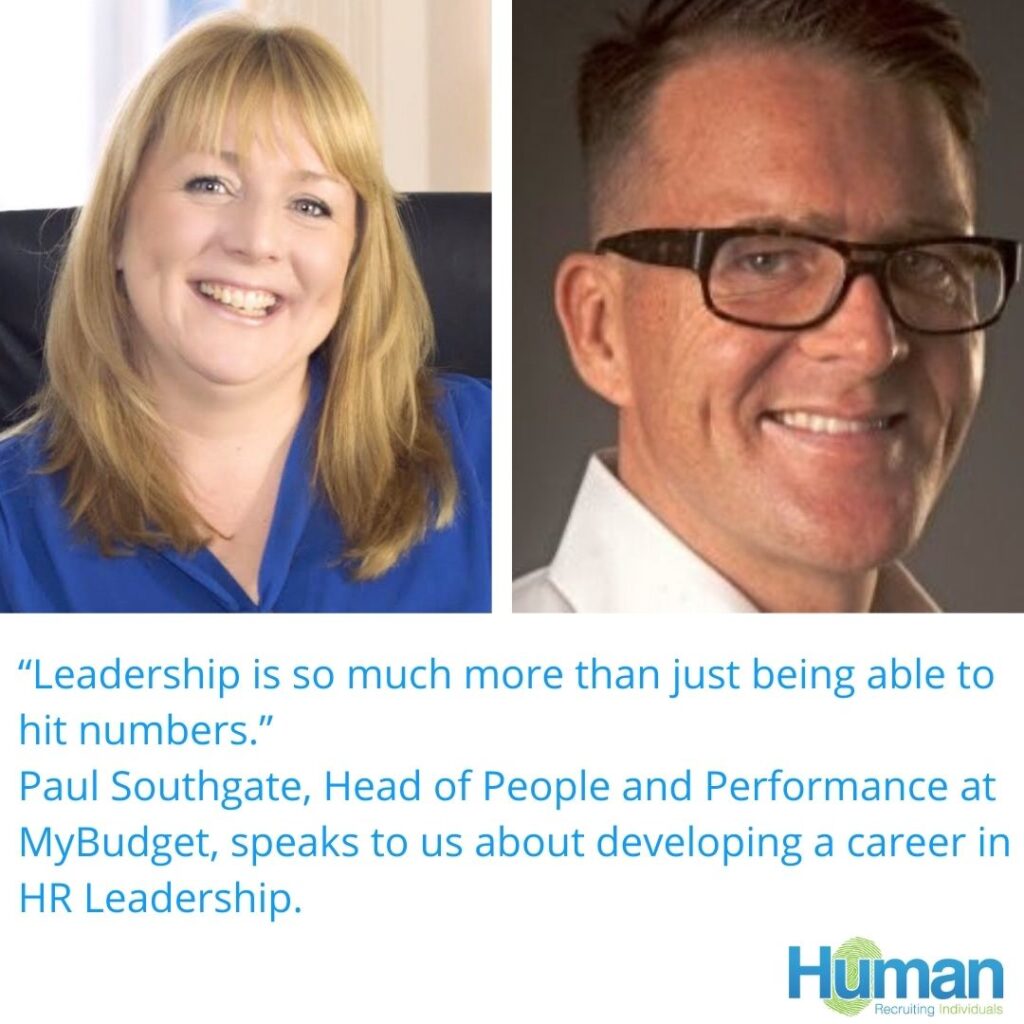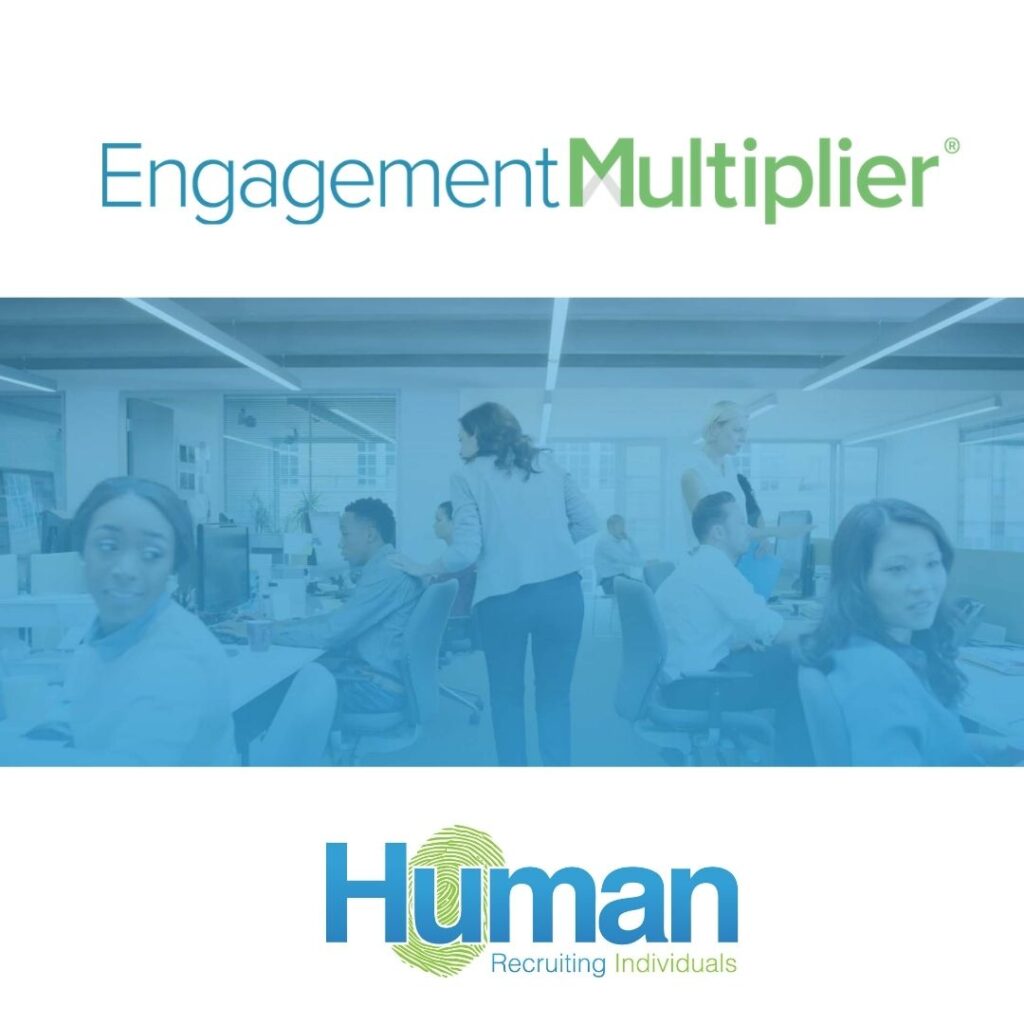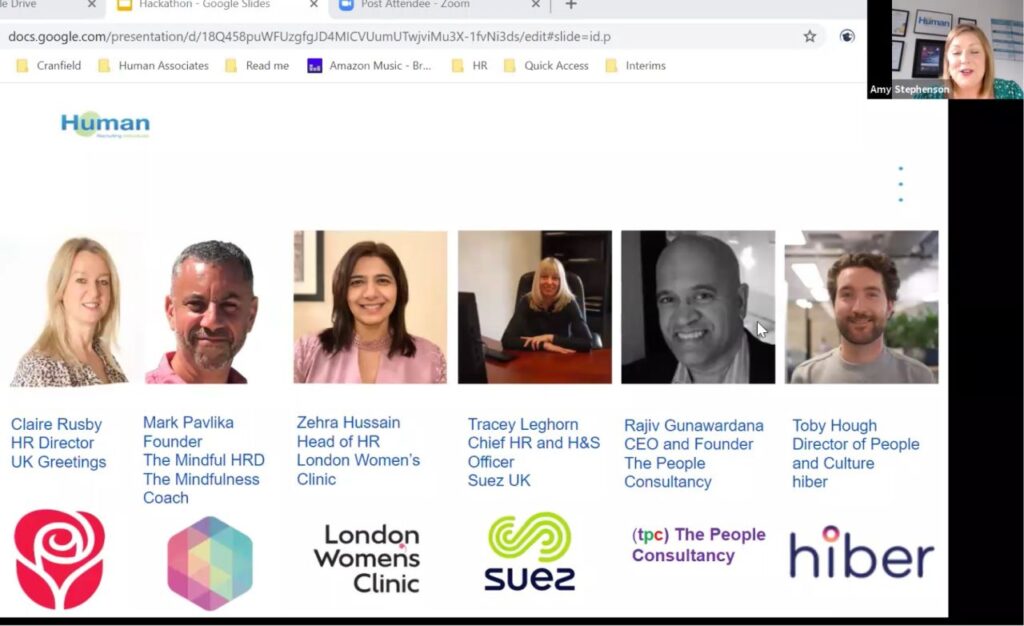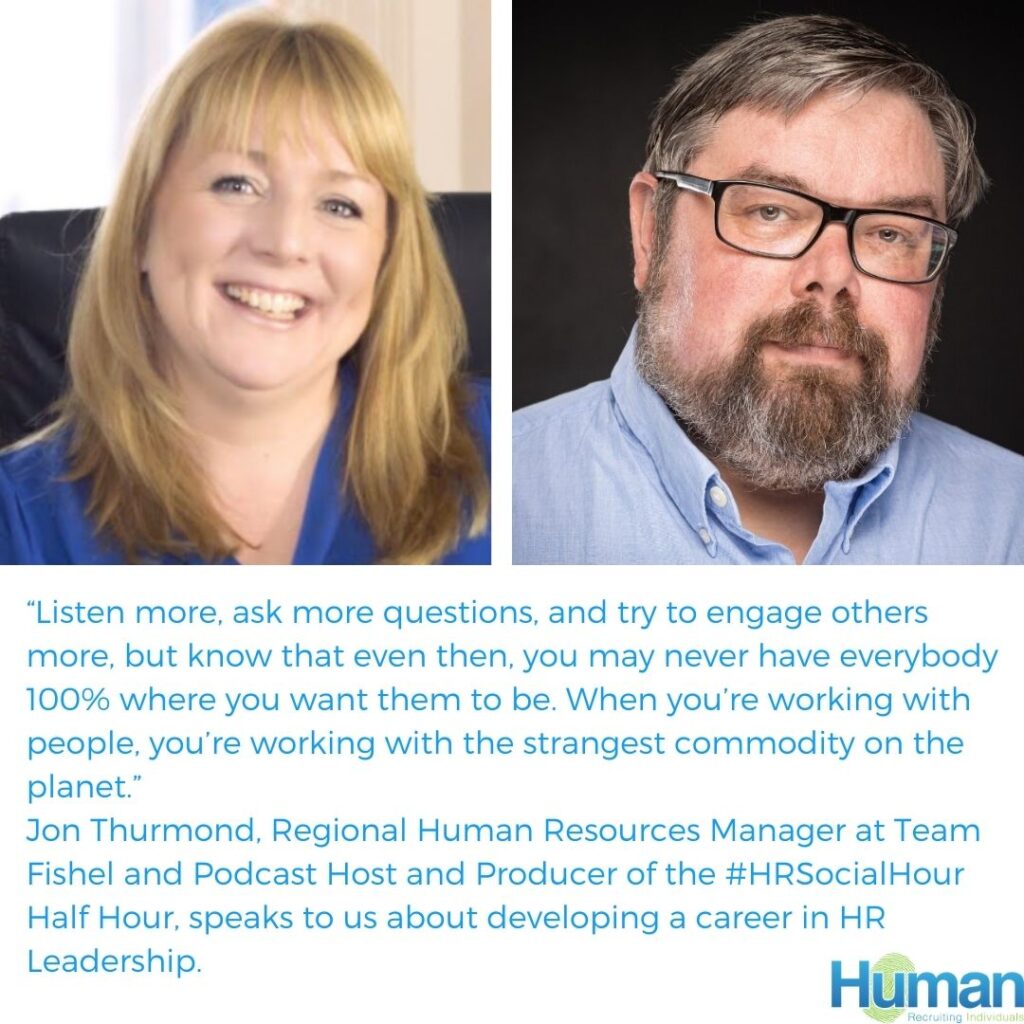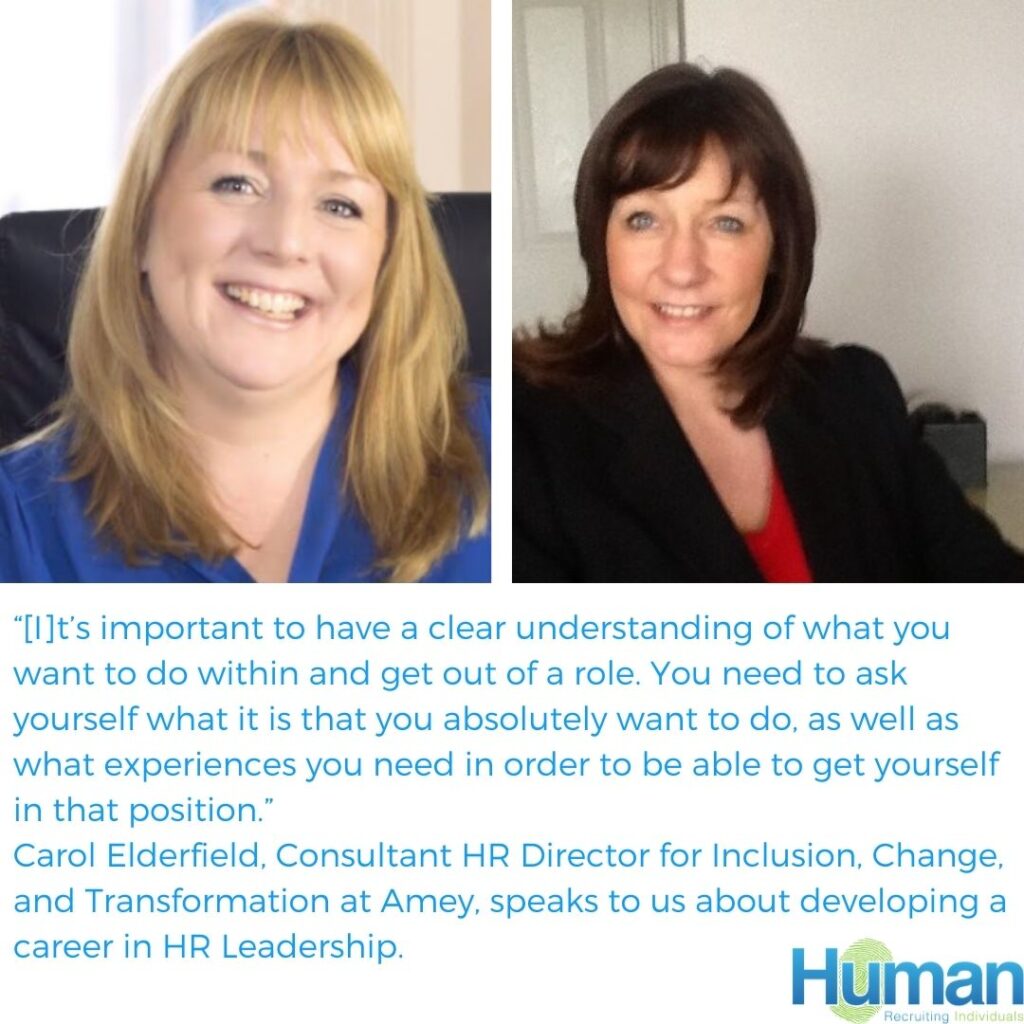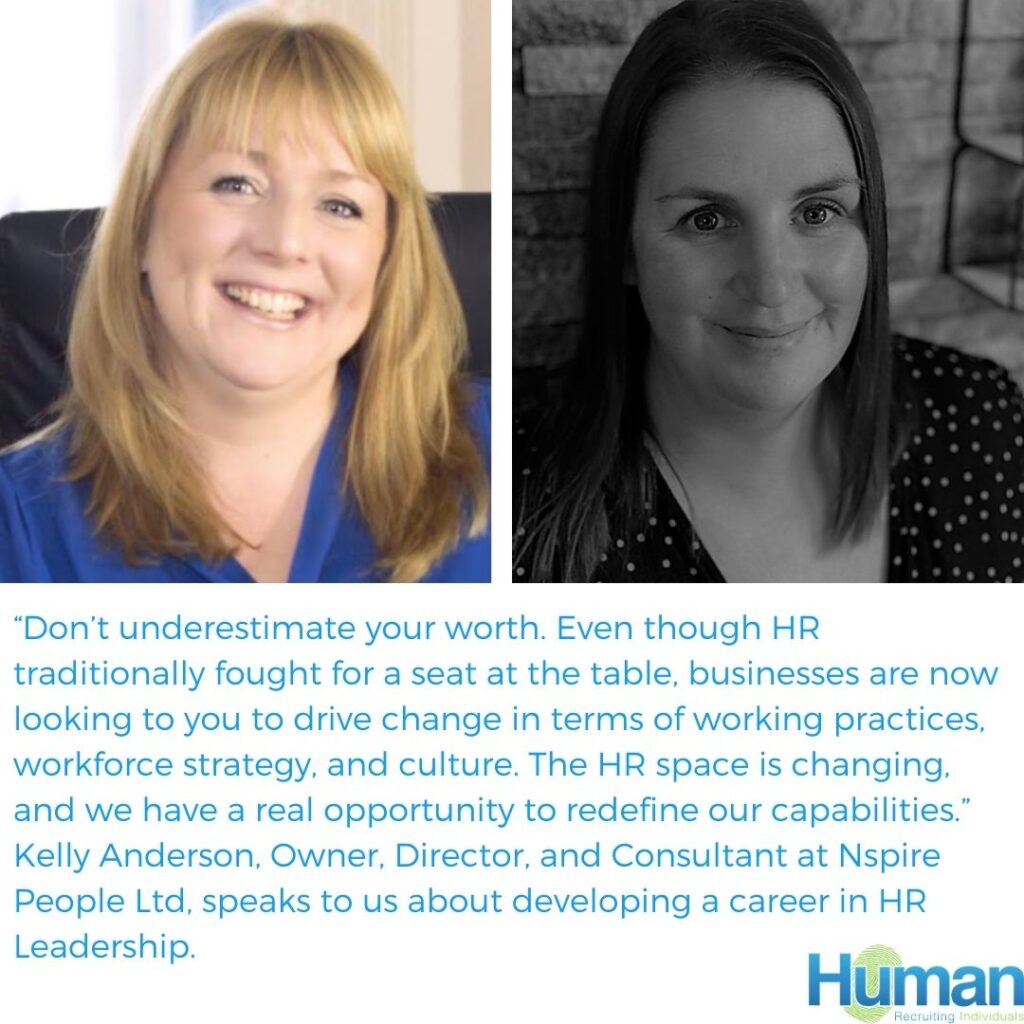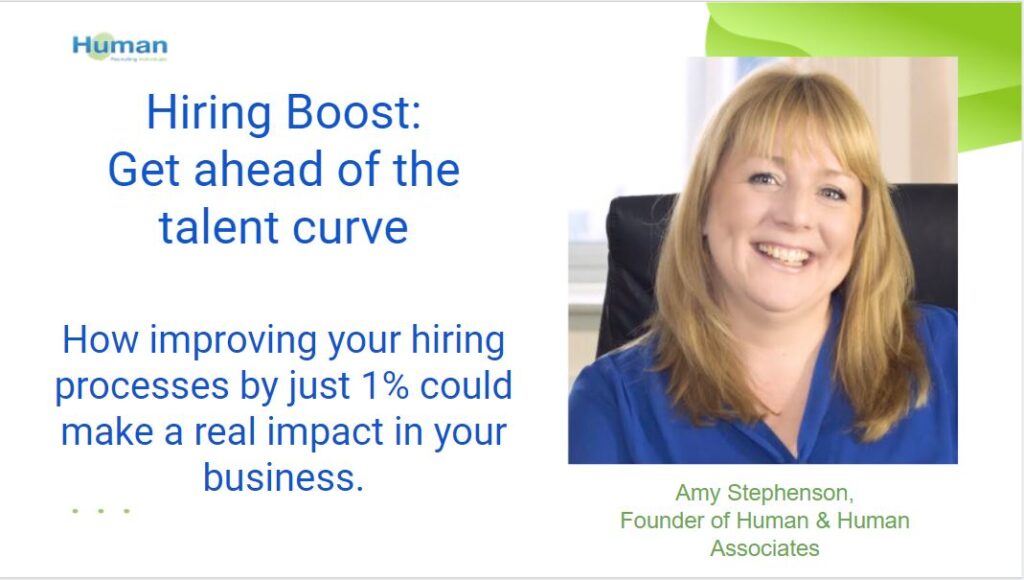‘We need to deeply understand our people and the change required’ – Interview with Clare Wright
“Cultural change isn’t just an HR responsibility, it’s an organisational responsibility. The most important thing for us as HR professionals to do is to hold a mirror up to our organisations about what they need to do to implement positive change and how they need to do it. To do that best, we first need to deeply understand our people and the change required.” – Clare Wright , Group HR Director for Jardine Motors Group, speaks to us about developing a career in HR Leadership. As part of our commitment to supporting candidates to develop fulfilling careers, we’ve invited some HR Leaders to share the secrets of their success. This week, we had a great conversation with Clare Wright at Jardine Motors group, who began her HR career as Customer Service Manager at Gilbert Lawton VW Audi before taking on a number of HR and Consultancy roles—including positions at Volkswagen UK, Stanley’s Casinos, the Shop Direct Group, Daisy Communications and E Front Global —ahead of returning to the automotive sector and joining the team at Jardine Motors Group in her current role in 2015. Can you tell us how you got into HR and why? I left school and went straight into work, and from there I got into HR by accident, really. When I first encountered HR, or Personnel as it was then, I was working in an operational role in a Volkswagen dealership called Gilbert Lawton VW Audi, and our Personnel system was literally our employee files locked in the accountant’s office. At the time, I was a Customer Service Manager, and we were working with Volkswagen UK on a leadership programme for the transition to a ‘bricks and clicks’ business model which incorporated both online and offline sales. As part of that programme, I started to network and talk to people about Personnel and HR in more depth. Hearing about HR made me realise that we needed to implement an HR strategy to make better quality hires and alleviate some of the negative feedback we’d been getting from our customers, so I persuaded my boss at the time—who was also the owner of the business—to allow me to go and start my CIPD qualification. Even back then, I was able to see where investing in my certification would reap rewards for his business. He agreed, after lots of negotiation so I went and did my CIPD qualification whilst working, then studied 2 nights per week at Manchester university for my postgraduate qualification afterwards. At the same time, the business grew, and I actually ended up running one of our new locations as well as having overall HR responsibility for our sites The credibility that came from both understanding how to run a car dealership and holding a formal HR qualification to back that understanding up meant that I was able to consult on HR with more credibility than ever before, which led to me being headhunted by Volkswagen UK to go and work with one of their consultancy partners on a large scale change programme to create a retail experience within their dealerships. The experience really honed my influencing and stakeholder management skills as well as my commercial skills. Since then, I’ve tried to take on as many career opportunities as possible, which HR has been perfect for; people are people no matter what business you work in. I’ve gained experience across lots of different sectors—motor and high street retail, telecommunications, and global software—to advance my career. Regardless of how long I’ve stayed with a particular company, I’ve always gone into businesses that are about transformation and change, because that’s what I really love. Although I’ve been here nearly six years, there’s still so much opportunity at Jardine Motors, and that’s what keeps me interested. I think my passion for HR came from my knowledge that if you understand your business and your customers and then align that to your people, you’ve got a successful company. In my first role, when we improved our people, our customer satisfaction and profitability significantly improved . I could see the difference HR was making right from the start, and that was really exciting. Can you tell me about the key themes and challenges that you’re seeing across the HR sector? A key theme of ours recently has been increasing our gender diversity, and I’m really proud of our achievements there. Our whole executive team has been committed to and feel responsible for that change programme, so whilst I’ve been sponsoring and facilitating our inclusion strategy, it’s fully supported and has been implemented right through the organisation. It’s been hugely successful, and we’re now focusing on extending the same approach to our whole diversity and inclusion piece; not because we’ve got massive issues, but because we have the opportunity to change and develop our culture and our business through it, to make it an even better place to work and for our customers to engage with . I think the uncertainty of COVID has been our biggest challenge. Working in HR throughout this crisis has probably been the toughest thing I’ve dealt with in my career to date. There has been complete uncertainty on every level, and our agility and resilience as an organisation has definitely got us through, especially during a tough reorganisation period. We still face the challenge of continuing to adapt to the COVID, lockdown etc as it evolves. We’re currently looking at further developing our employee value proposition for the world we now live in, so there are still lots of great opportunities for change and development but we’re conscious that we need to have a contingency plan in place in the event that we have to change direction again. We’ve also had to work on ensuring that the organisation and our leadership teams understand that the situation is highly changeable and that we need to continue to adapt, as well as the importance of keeping people motivated and engaged enough to continue

